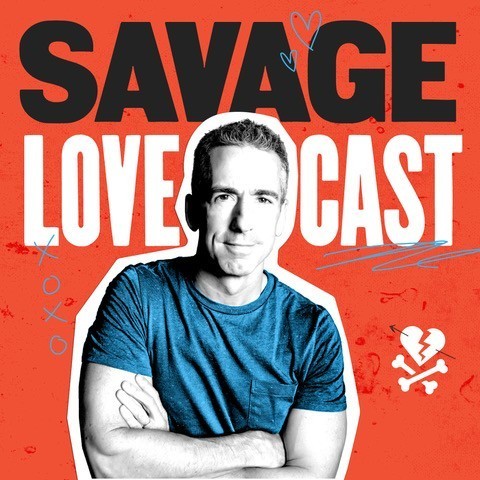I’m a 24-year-old gay guy, and I was raised in a very conservative Christian bubble. I came out as gay right after high school, and a year or so later, I also came out as an atheist. Like you said in your book, I realized the church was wrong about me, and that made me wonder what else the church got wrong.
My younger brother, on the other hand, latched on to Christianity, and a few years ago he also came out as gay to my parents, church leaders, and a few Christian friends. He went to a Christian university, saw a Christian counselor, and his bookshelf is lined with ex-gay self-help books. He’s had a few girlfriends since coming out, but instead of hiding it from them, he’s told them, and they are ok with it. It sounds like everyone has been really open and supportive of him, but it’s all support in helping him “change.”
I was passive aggressively posting articles on Facebook that criticize “ex-gay” therapy, and my brother basically told me to cut it out because he wasn’t interested in being “ex-gay.” He says he just struggles with same-sex attraction, and wants to live as much like Jesus as possible. As far as I can tell, this means either a life of prayerful celibacy, or with a supportive wife.
Part of me wants to be “sex positive,” (or at least “sex neutral”) and not worry too much about this particular kink, but I worry for his well-being while dealing with so much repression, and surrounding himself with others who encourage struggling with a sort of hopeful shame. I also can’t help thinking about all the healthy experiences he’s choosing to miss out on, or the potential pain he could cause some woman or the hypothetical children my parents hope he’ll produce.
Ultimately, his personal life probably isn’t too much of my business, but I feel like it does slow down any progress with my parents accepting me.
I’ve recently decided I need to come out to my extended family, but they’re even more fundamental, and I’m afraid being honest with my grandparents will further stress the relationship I have with my parents and brother. My parents and I have basically fallen into an awkward “Don’t ask, don’t tell” understanding, but I don’t want to ruin the civility we’ve worked to establish the past several years.
I’ve heard you talking about the Not All Like That Project, and while I think that’s a fine way to perpetuate watered-down Christianity, I think it misses the point that most fundamentalist bible-believers ARE like that.
Despite how it may sound, my family members are all good, loving people, and I actually don’t have that many complaints about my upbringing. But I’m just not sure what to do. I know coming out and being honest is ideal, but I’m already the black sheep of my family, and I’m worried about further alienating myself. Any advice?The Gay Brother
A response from a guest expert... after the jump.
••••••••••••••••••••••••••
My first thought after reading your letter was this: Your brother wants to live as much like Jesus as possible? So... with twelve other men and dead by 33 then?
My second thought was to pass your question along to Aaron Hartzler, a writer and award-winning performer. Hartzler is the author of the young adult autobiography Rapture Practice, which is about his experiences growing up gay in a hyper-conservative Christian bubble. Here's Aaron's advice for you...
Dear TGB,
I grew up in the same Christian bubble you did with fundamentalist parents who believe those “Not All Like That” Christians are seriously backslidden and probably not “truly saved.” I also had a younger brother who was queer as a football bat. When he was 12 years old he asked for (and received) an espresso maker for Christmas. As we sipped lattes by the tree that morning, he gave our grandmother a French manicure. I was 19 at the time, and realized I needed to come out of the closet before my little bro beat me to the punch.
A few months later, the opportunity to come out presented itself. My father asked me if I was “experiencing moral victory” in my life over the “sin of homosexuality.” Once I stopped laughing, I honestly answered, “No,” then came out to my entire family.I endured the sermons, and the Bible-thumping, the unending stream of Christian “you can change!” books/DVDs that showed up at my door, and my mom saying it’d be easier to go to my funeral. But I was living in a different state by then, and could keep some boundaries in place for myself. I limited my time with them, let their calls go to voicemail, didn’t answer every email, and only saw them when I felt like it. All the while I thought, “Well, at least I’m clearing the path for my little brother. This will make it easier for him to come out.” I finished grad school, hunkered down, and waited for his big announcement.
And then…nothing happened. My brother followed my Dad’s directive to attend a year of Bible college, transferred schools, graduated, and moved to New York where he started working as a runway model. I thought, “This is it! Surely he’ll come out now.”
Nope.
The silence was deafening for years. Where was the gay brother who would be my true family? Thank me for clearing a path? Become my partner in crime?
The longer I fretted over this and waited for him, the more clearly I understood one thing: I was powerless over my brother’s choices. I only had power over my own.
My advice? Let your brother and your parents off the hook for your happiness. And let yourself off the hook for theirs. Come all the way out to your whole family—grandparents and all. Not doing so doesn’t make them any more accepting. Plus, it makes you complicit in your parents’ message to your brother that being gay is not okay.
You’re so brave and strong to have figured out who you are, and to have exited the fundamentalist mind meld. That’s a good thing, because I won’t sugar coat this: you’re going to need that strength and bravery. Things may get worse with your parents before they get better. They may never get better. But you know something? Awkward civility is so overrated. Give me an honest argument any day.
Who wants to sit around being awkwardly civil with people who don’t accept you because they love their unseen god more than their children? My parents view this as noble—like Abraham’s willingness to sacrifice Isaac. As Julia Sweeney once said, “Isn’t the correct answer to that question NO? I will not sacrifice my child to you, or to any other god.” Be the honest man you were raised to be. Spread your own Good News to your family, and feel your feelings about it, not theirs. It always feels great to have nothing to hide, and you may be the only person challenging their belief system with a little bit of reason.
Finally, the most important thing is that you let your brother know how much you love him, that you want him to be happy, and that you are there for him—no matter what. Then lead by example. Words don’t teach people. Experience teaches people.
I used to send my brother a letter or email like that about once a year, usually after something like watching Prayers for Bobby on Lifetime. Eventually, he came out to me and our whole family. Turns out my parents’ reaction to my coming out had made things worse on him, not easier. I sort of blew a hole in the wall and ran at 19. He was stuck there for another six years with parents who made it their mission to make sure he wasn’t gay—when he so clearly was.
Last year, he married a wonderful man in New York. Our parents didn’t come to the wedding because he didn’t invite them. He said, “The only tears at my wedding will be the happy kind.” Those are the words of an honest man who knows who he is and what he wants.
Don’t know if your brother will ever come around, but I do know that you’ll never be able to worry him out of his self-made purgatory—this bizarre celibacy prescription for gays that’s all the rage with the “compassionate” conservatives these days. So when you feel worried about him? Go talk it out with a therapist. Hit the gym. Take a hike. Pet the dog. Volunteer to work with gay youth in your area or online. Let your brother know you love him no matter what, then get out there and enjoy a truly abundant life.
The only way things will get better for your little brother is if he gets totally honest with himself. You can’t do that for him, but you can show him how it’s done. That’s what we big brothers do best.
All my best,
Aaron
Rapture Practice is an enthralling, hilarious, and, at times, completely harrowing read—I devoured it over a weekend—and I highly recommend it. You can and should order a copy here. And you can and should follow Aaron Hartzler on Twitter at @aaron007.
















